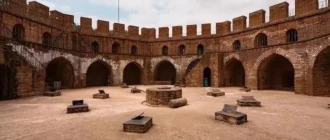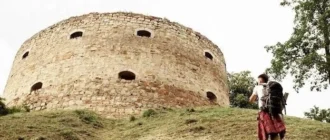Understanding the Risks: A Balanced Perspective
Traveling to Kabul, Afghanistan, presently sits within a complex risk-assessment landscape. While the Taliban’s control has brought a degree of stability and reduced armed conflict, security concerns persist, including incidents attributed to groups like ISIS. Travel advisories from various governments, including the United States and United Kingdom, strongly advise against travel to Afghanistan. It is paramount for potential visitors to acknowledge and thoroughly research these advisories, understanding that consular support in Kabul is extremely limited.

Visa Requirements and Border Crossings
Navigating entry into Kabul, Afghanistan, necessitates meticulous attention to visa regulations and border procedures. Securing a visa typically involves engaging with an Afghan embassy or consulate, a process potentially complicated by the reduced diplomatic presence of Afghanistan in some countries.
While specific requirements vary based on nationality, common prerequisites often include:
- A valid passport with a minimum of six months’ validity remaining beyond your intended stay.
- A completed visa application form.
- Passport-sized photographs adhering to specific requirements.
- Proof of sufficient financial means to support your stay.
- A detailed itinerary outlining your travel plans within Afghanistan.
Applicants may also be required to provide additional documentation, such as a letter of invitation from a sponsor within Afghanistan or proof of onward travel arrangements. Visa fees and processing times can vary, and it is strongly advised to contact the relevant embassy or consulate well in advance of your intended travel dates for the most up-to-date information.
Kabul International Airport (KBL) serves as the primary entry point for international travelers. While direct flights from various international destinations are available, travelers are advised to confirm flight schedules and availability, as these can be subject to change. Land border crossings from neighboring countries like Uzbekistan, Iran, and Tajikistan are also operational; however, it is crucial to verify the accessibility of specific crossings and any associated entry regulations.

Navigating Kabul: Transportation and Accommodation
Moving around Kabul generally requires utilizing a combination of transportation methods, each with its own considerations. Taxis are widely available and often the most practical choice for navigating within the city. It is advisable to negotiate fares in advance and ensure the driver is reputable, potentially seeking recommendations from your accommodation or local contacts.
While private car hire services exist, exercising heightened caution and due diligence regarding the reliability and security of the provider is essential. Public transportation, such as buses, serves various routes within Kabul, though it can be crowded and may not adhere to strict timetables. For those seeking more autonomy, car rentals are available; however, navigating Kabul’s traffic and road conditions necessitates experience and a degree of familiarity with local driving customs.
Accommodation options in Kabul range from modest guesthouses to more established hotels. Security remains a paramount concern, and selecting accommodations with robust security measures in place is non-negotiable. Seeking recommendations from reputable sources or consulting with individuals familiar with Kabul’s security landscape is highly encouraged. It’s important to note that some accommodations may have restrictions on unmarried couples sharing rooms, aligning with cultural norms.

Essential Cultural Etiquette for Visitors
Respect for Afghan culture and customs is paramount when traveling in Kabul. Demonstrating cultural sensitivity fosters positive interactions and minimizes the potential for misunderstandings. Afghanistan is an Islamic country, and adhering to Islamic customs is essential, particularly when interacting with local communities.
Dress modestly, covering shoulders and knees, particularly for women. Men should avoid wearing shorts in public. When entering homes or mosques, removing your shoes is customary. Public displays of affection between genders are inappropriate and best avoided. Using your right hand for gestures like greeting, eating, or exchanging objects is considered respectful.
When engaging in conversation, exercise politeness and avoid interrupting. Direct eye contact is generally acceptable, though prolonged staring can be perceived as confrontational. Expressing genuine interest in Afghan culture and history is often well-received. It’s important to note that photography of government buildings, military installations, and individuals, especially women, may be restricted. Always seek permission before taking photos.

Exploring Historical and Cultural Landmarks
Kabul, steeped in history and bearing the marks of numerous empires, offers a captivating array of historical and cultural treasures, though access to these sites may be subject to current conditions and local regulations.
The National Museum of Afghanistan, though it has faced challenges in recent times, stands as a testament to the nation’s rich artistic and archaeological heritage, housing a diverse collection of artifacts spanning millennia. Babur’s Gardens, a serene oasis amidst the bustling city, provides a glimpse into Mughal-era landscaping and offers panoramic views of Kabul. The mausoleum of Babur, founder of the Mughal Empire, rests within the gardens, a testament to architectural grandeur.
The Bala Hissar, a historic fortress overlooking Kabul, has served various rulers throughout history and provides insights into the city’s strategic significance. While sections may be inaccessible due to security reasons, the visible remnants offer a glimpse into Kabul’s fortified past. Exploring Kabul’s historic old city, with its labyrinthine streets and traditional architecture, offers a journey back in time. The area is home to numerous mosques, shrines, and bustling bazaars, offering insights into daily life and local craftsmanship.

Health and Safety Precautions for Travelers
Ensuring your well-being in Kabul necessitates proactive health planning and a comprehensive understanding of potential safety concerns. Consulting a travel medicine specialist well in advance of your trip is crucial for assessing required vaccinations and obtaining necessary prophylactic medications, including those for malaria, depending on your itinerary.
Access to healthcare facilities in Kabul may be limited, and their standards can vary. It is strongly recommended to travel with a well-stocked first-aid kit containing essential medications, antiseptic wipes, and supplies to address minor ailments. Maintaining a high level of food and water hygiene is essential to prevent gastrointestinal issues. Consume only bottled water, ensuring seals are unbroken, and opt for thoroughly cooked food from reputable sources.
The security situation in Kabul remains fluid and unpredictable. Staying informed about current events, following the guidance of local authorities, and exercising caution when moving around the city are paramount. Avoid traveling alone at night, and refrain from displaying large sums of money or expensive jewelry. Registering your presence with your embassy or consulate can facilitate communication and support in case of emergencies.

Responsible Tourism in a Changing Landscape
Engaging in responsible tourism within Kabul’s evolving context necessitates a nuanced approach, acknowledging the complexities of its current situation and prioritizing ethical considerations. Given the ongoing humanitarian challenges faced by Afghanistan, supporting local businesses and communities is paramount. Opting for locally owned accommodations, dining at restaurants serving traditional Afghan cuisine, and purchasing handicrafts directly from artisans directly contributes to the local economy.
Engaging in respectful dialogue with local residents, seeking to understand their perspectives and experiences, can foster cross-cultural understanding. However, it is crucial to approach such interactions with sensitivity, avoiding topics that may be considered intrusive or insensitive. Demonstrating respect for Afghan culture extends to responsible photography practices. Always obtain consent before photographing individuals, particularly women, and refrain from capturing images that may be deemed culturally inappropriate or exploitative.

Connecting with Local Communities and Experiences
While Kabul presents inherent complexities for travelers, authentic engagement with local communities, conducted with sensitivity and respect, can foster meaningful connections and provide a deeper understanding of Afghan culture. Seeking opportunities to interact with residents beyond the typical tourist sphere can provide invaluable insights into daily life, perspectives, and traditions.
Participating in cultural events or workshops, such as learning basic Dari or Pashto phrases, traditional cooking classes, or attending a local music performance, offers a glimpse into the richness of Afghan heritage. These experiences provide platforms for respectful interaction, fostering cross-cultural exchange and appreciation. Consider engaging with local NGOs or community-based initiatives working on projects aligned with your interests. This approach facilitates responsible engagement by contributing to initiatives that directly benefit local communities.
It is crucial to remember that building trust and rapport takes time and sensitivity. Approaching interactions with humility, seeking to listen and learn rather than impose, fosters genuine connections and fosters cross-cultural understanding in a manner that respects local customs and sensitivities.










